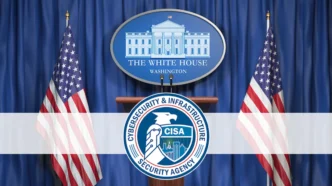Federal election security could face serious setbacks following budget cuts to the Cybersecurity and Infrastructure Security Agency (CISA) under the Trump administration, according to leading security experts. During a roundtable held on March 27 by Keep Our Republic. A non-partisan election integrity group, current and former government officials voiced concern about how these cuts are already impacting CISA’s ability to protect upcoming elections.
Among the speakers were Al Schmidt, Secretary of the Commonwealth of Pennsylvania; Suzanne Spaulding, former undersecretary for the DHS’s National Protection and Programs Directorate (the predecessor to CISA); and Deborah McCarthy, former senior adviser on cybercrime at the U.S. Department of State. Their message was clear: the reduction in federal cybersecurity support is putting state and county election systems at risk.
CISA plays a vital role in safeguarding U.S. elections—both by offering cybersecurity services and by countering disinformation campaigns. The agency routinely provides intelligence briefings, threat assessments, physical and cyber evaluations, training sessions, and simulations to local election officials. But according to Schmidt, that essential support is now in jeopardy.
“Withdrawing the type of support that CISA provides makes elections less secure,” Schmidt warned. “This isn’t just about the agency—it’s about the resources that only the federal government can offer to counties. That’s what makes these cuts so troubling.”
Pennsylvania’s election system has been a frequent target for interference, but Schmidt noted that CISA was instrumental in preparing the state’s counties last year. “We relied on their assessments, intelligence bulletins, training programs, tabletop exercises—everything that helps local officials defend against both digital and physical threats.”
While Pennsylvania will continue to work with local and federal partners, Schmidt emphasized that no state or county can match the capabilities that CISA brings. “Losing that support leaves a dangerous gap,” he said.
Beyond the operational risks, the roundtable also touched on the changing perception of election officials themselves. Schmidt, who oversaw elections in Philadelphia County for a decade, said he’s seen a dramatic shift in how administrators are viewed.
“In recent years, we’ve seen election workers unfairly labeled as political actors or adversaries,” he explained. “That simply wasn’t the case six or seven years ago. It’s a significant change—and one that adds even more pressure to an already critical system.”
Spaulding and McCarthy echoed his concerns, pointing out that federal investment in election security is needed now more than ever. From foreign interference attempts to domestic disinformation, today’s threats are increasingly complex. And without full funding and leadership at CISA, the country’s election infrastructure is left exposed.
The experts concluded that protecting the integrity of elections should never be a partisan issue. Instead, it requires sustained federal commitment, trusted partnerships, and the kind of specialized tools and intelligence that only agencies like CISA can provide.













